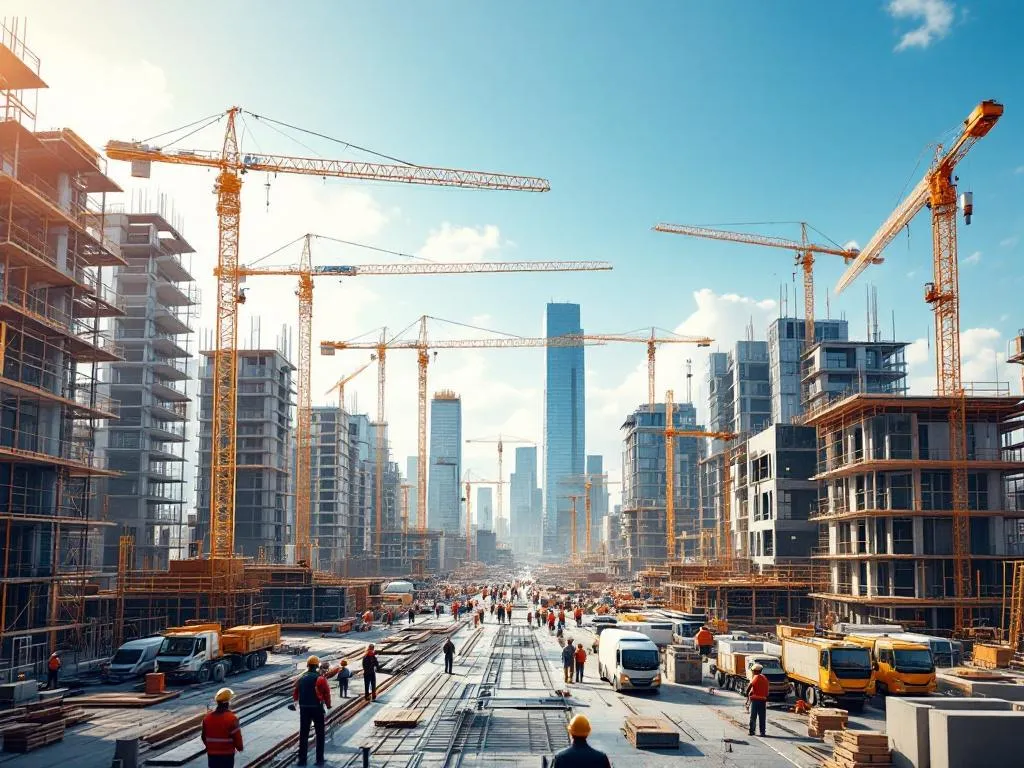
Building the Future: A Comprehensive Insight into Modern Construction Services
In the ever-evolving landscape of modern construction, techniques, materials, and technologies are constantly being refined, reimagined, and revolutionized. Construction services encompass a broad spectrum of activities, from planning and project management to the physical act of building. This sector has a significant impact on infrastructure development, setting the foundation for communities and economies to grow and thrive.
In the past, construction primarily involved manual labor and basic tools. However, the advent of technology and the digital revolution has transformed the construction industry. Today, the use of innovative techniques such as Building Information Modelling (BIM), 3D printing, and drone technology has become commonplace. These advancements have not only increased efficiency and productivity but also brought about improved safety and minimized environmental impact.
Building Information Modelling (BIM) has been a game-changer in construction services. This digital representation of physical and functional characteristics of a facility allows for better project management. BIM facilitates the exchange of information among stakeholders, leading to improved collaboration, reduced errors, and a faster construction process. Moreover, it allows for a virtual visualization of the project, enabling stakeholders to make more informed decisions.
3D printing, also known as additive manufacturing, is another innovative technique shaping the future of construction. This technology enables the creation of complex, customized designs with less waste and lower costs. 3D printing in construction can range from producing components off-site for later assembly, to printing entire buildings on-site. It offers the potential to construct buildings quicker, cheaper, and in a more environmentally-friendly manner by reducing waste and transportation.
Drone technology has also found its niche in construction services. Drones can capture real-time images from inaccessible areas, generate accurate site surveys, and monitor progress. They can also improve safety by reducing the need for workers to access hazardous areas.
In terms of materials, the construction sector has seen a shift towards more sustainable options. Green building materials such as recycled steel, bamboo, and low-impact concrete are gaining popularity. These materials are not only eco-friendly but also offer durability and resilience, contributing to the lifecycle of the buildings. The incorporation of smart materials, such as self-healing concrete and phase change materials, promises to further revolutionize construction services.
In addition to the use of innovative techniques and materials, modern construction services have also embraced digital tools and platforms for enhanced project management. Cloud-based software, mobile applications, and data analytics are being leveraged to streamline workflows, improve communication, and enhance decision-making.
The impact of these advancements on infrastructure development is profound. Efficient construction services can lead to faster completion of projects, reducing the overall cost and contributing to economic growth. Moreover, the use of sustainable materials and techniques contributes to the creation of green infrastructure, promoting environmental sustainability.
The future of construction services looks promising, with several emerging trends on the horizon. The integration of artificial intelligence and machine learning in construction processes can lead to further efficiency and accuracy. Robotics and automation also hold immense potential in mitigating labor shortages and increasing productivity.
The rise of prefab and modular construction, which involves the assembly of sections manufactured off-site, is another trend to watch. This method can significantly reduce construction time and costs, making it an attractive option for both residential and commercial projects.
Green and smart buildings, equipped with energy-efficient systems and technologies, are expected to become the norm rather than the exception. These buildings not only reduce carbon footprints but also enhance the quality of life for the occupants.
Despite the numerous advancements, the construction sector also faces challenges. Resistance to change, lack of skilled workers, and regulatory hurdles are some of the obstacles that need to be addressed to fully harness the potential of modern construction services.
In conclusion, modern construction services are at the forefront of innovation, transforming the way buildings and infrastructure are designed, built, and managed. The sector continues to evolve, driven by technological advancements, sustainability concerns, and the quest for efficiency. As construction services continue to innovate and adapt, the future of infrastructure development looks brighter than ever.
